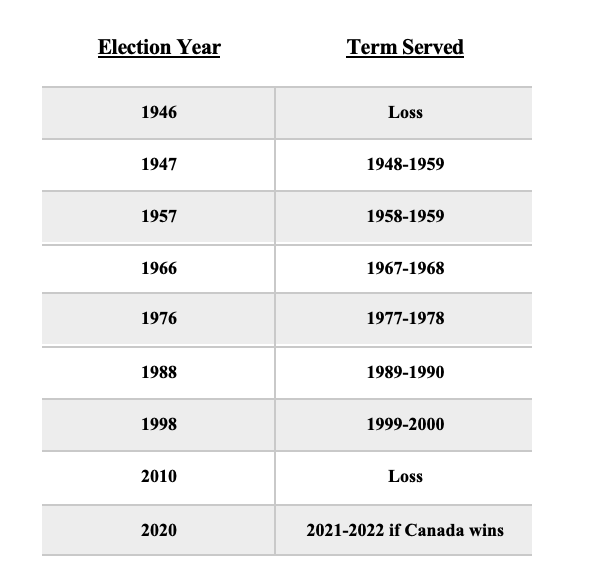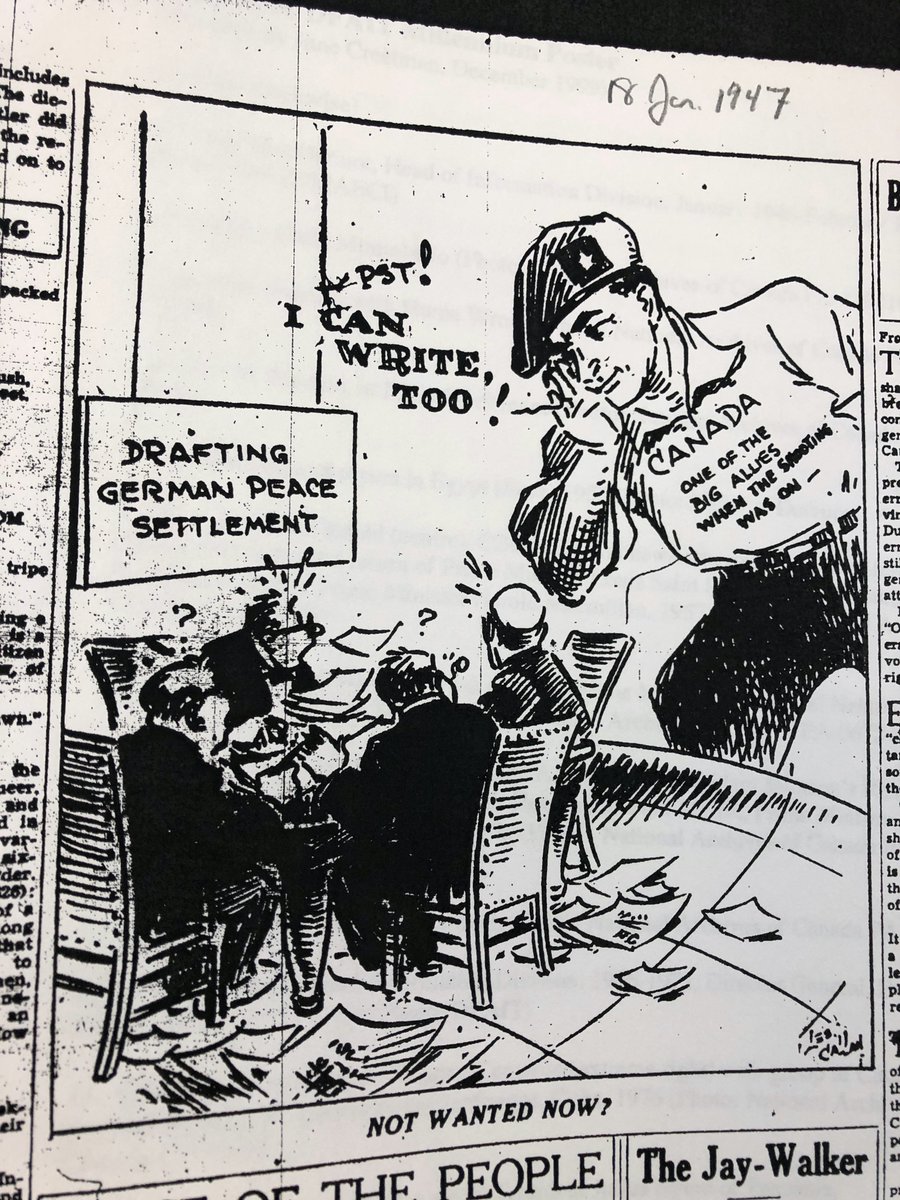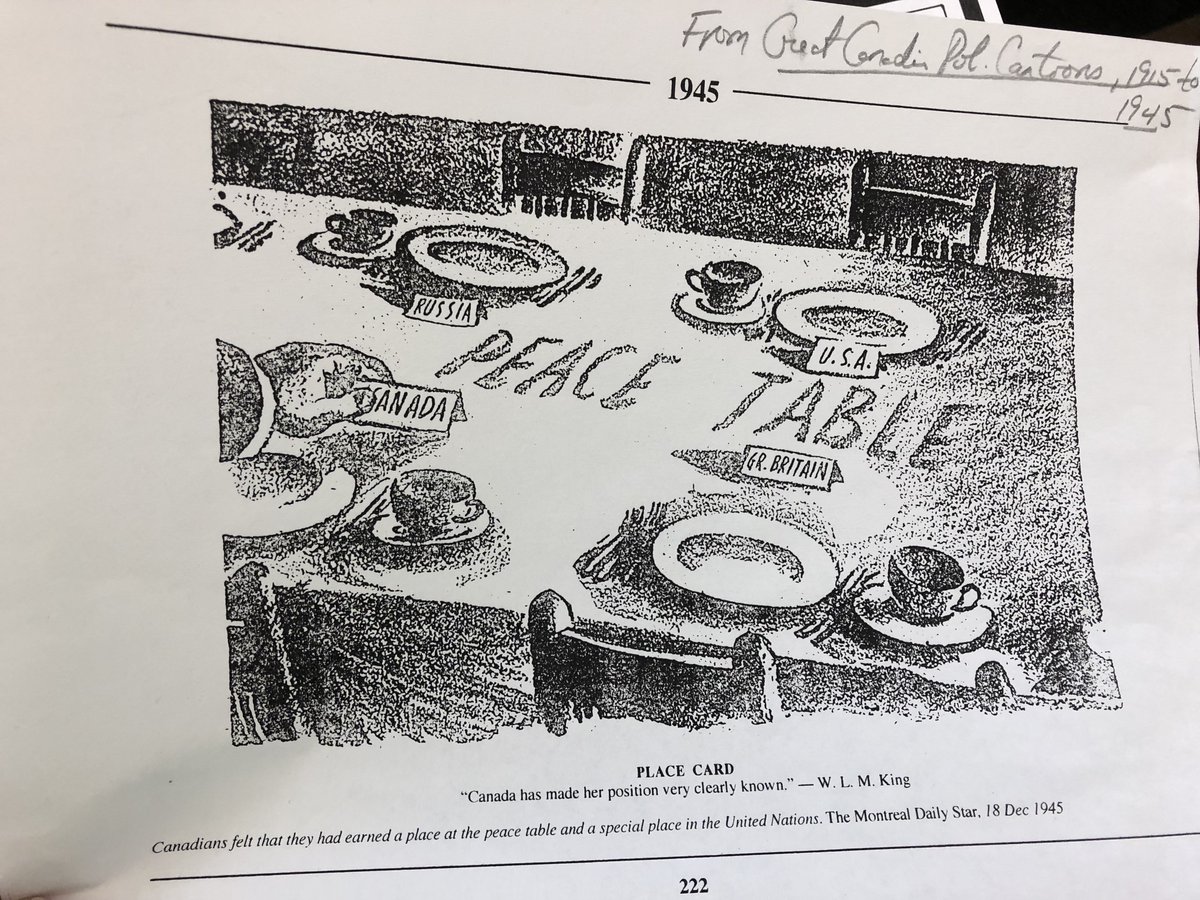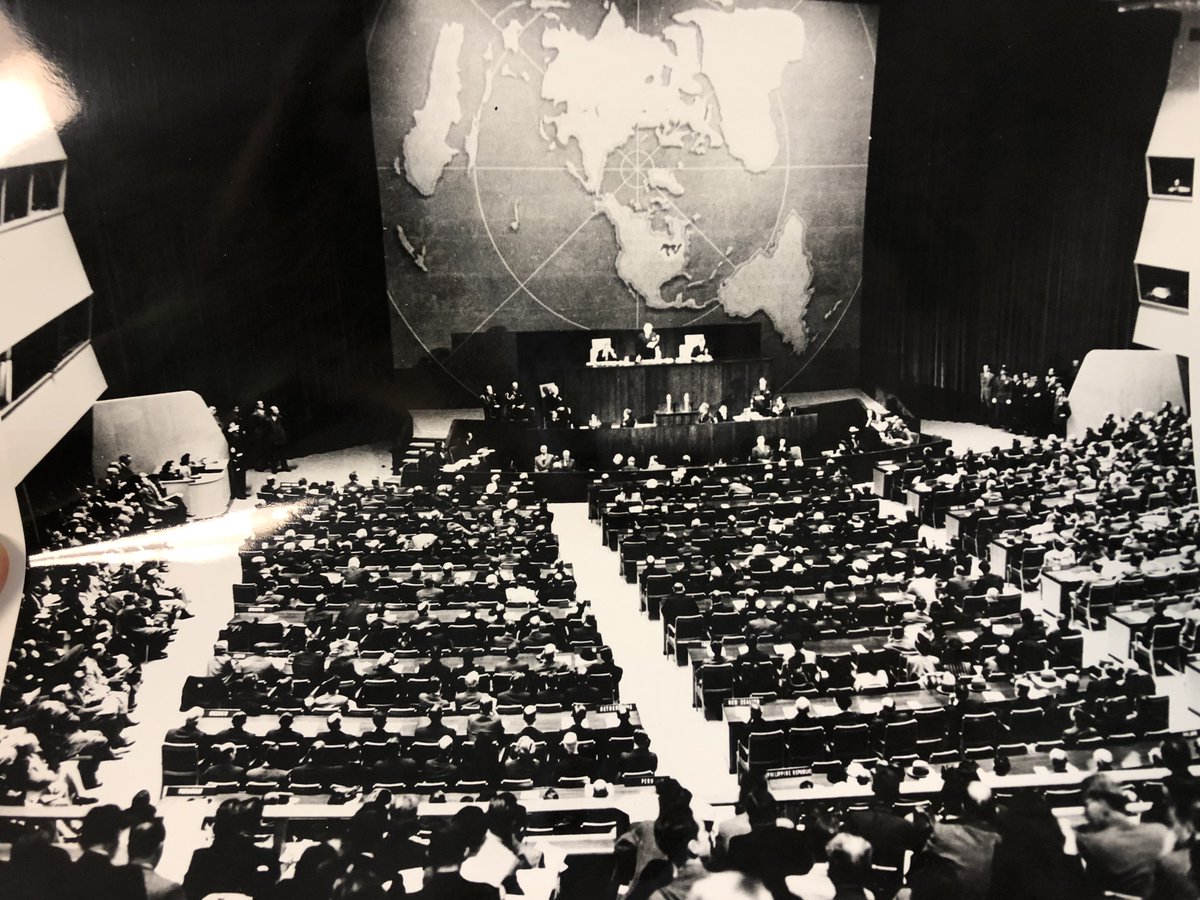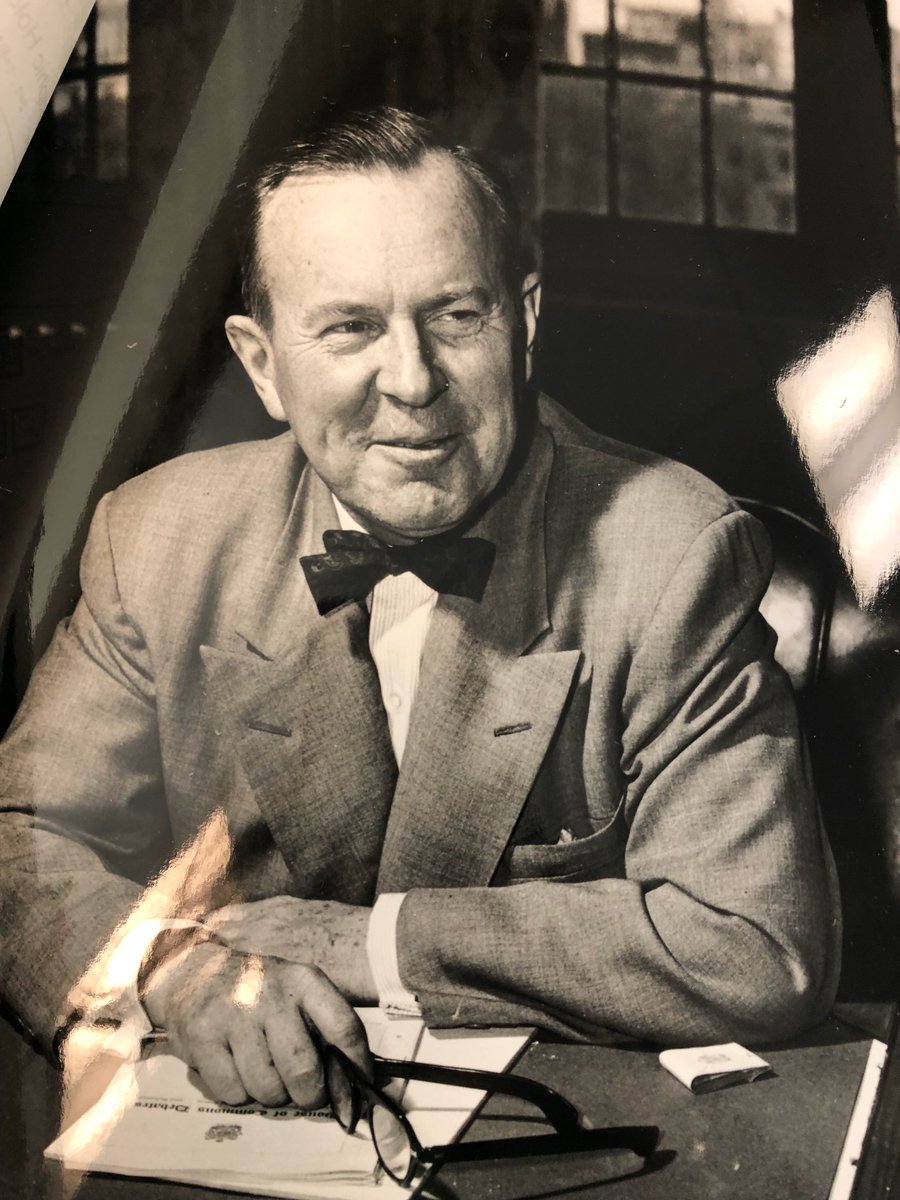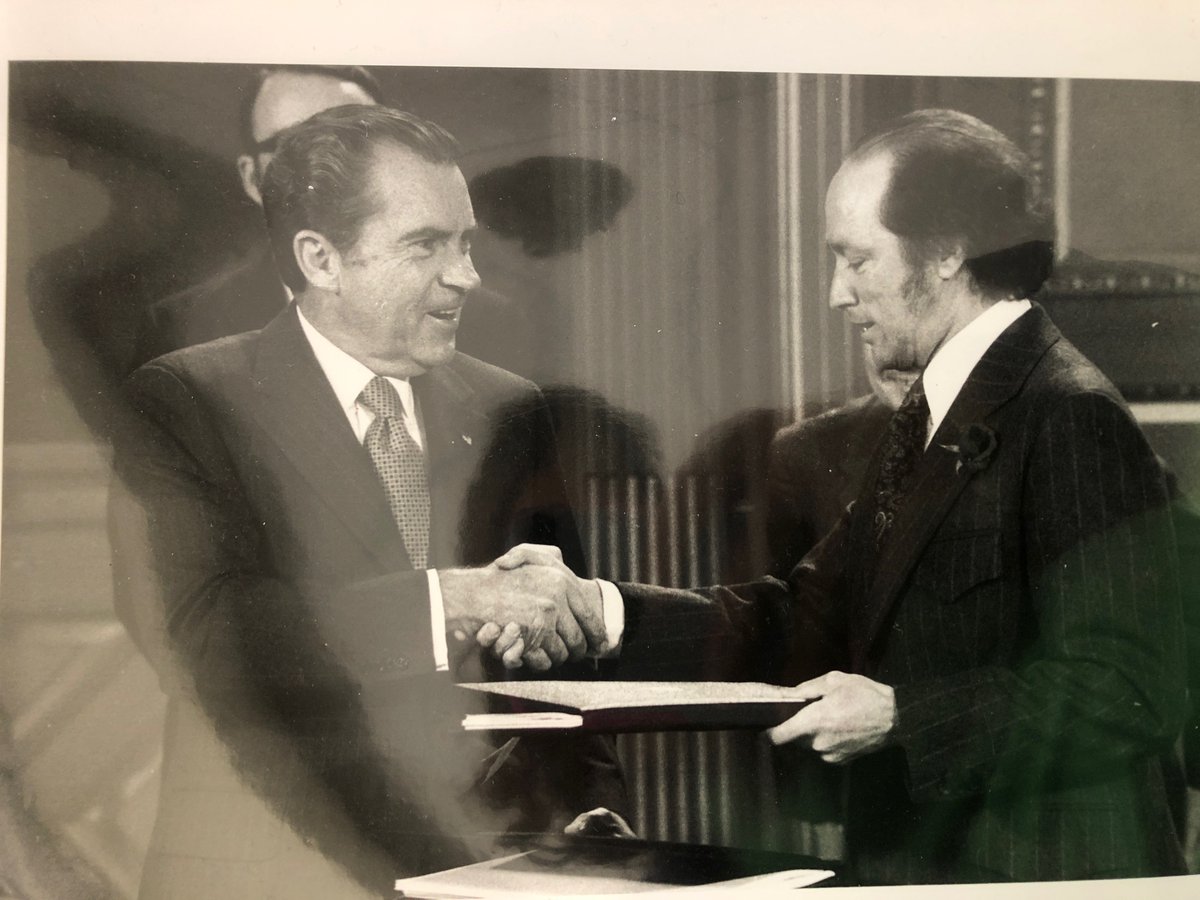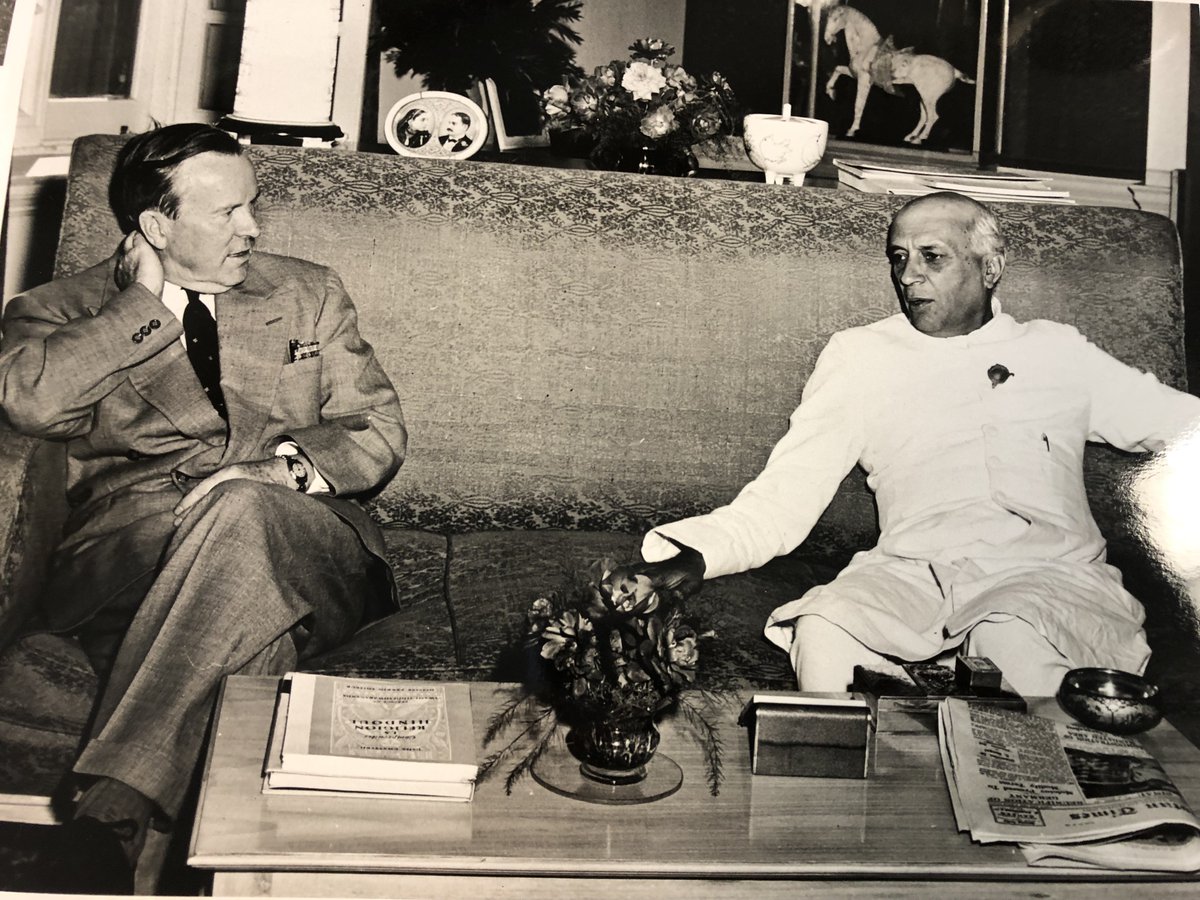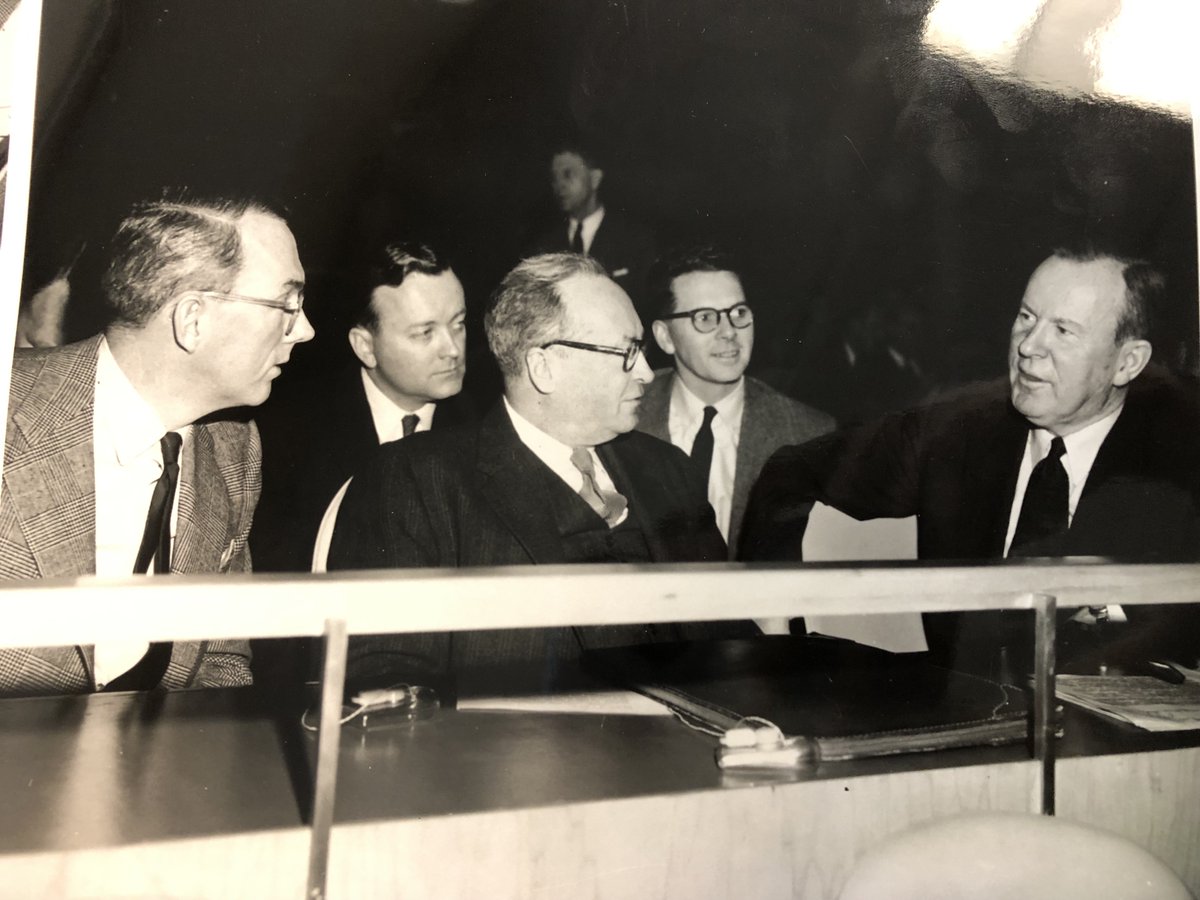Hi! I’m Caroline and I work on Canada https://abs.twimg.com/emoji/v2/... draggable="false" alt="🇨🇦" title="Flag of Canada" aria-label="Emoji: Flag of Canada"> at the UNSC
https://abs.twimg.com/emoji/v2/... draggable="false" alt="🇨🇦" title="Flag of Canada" aria-label="Emoji: Flag of Canada"> at the UNSC https://abs.twimg.com/emoji/v2/... draggable="false" alt="🇺🇳" title="Flag of United Nations" aria-label="Emoji: Flag of United Nations"> This is a work in progress – thoughts are welcome as I dig through archival documents and start interviews (by phone)! #WIISTOTC
https://abs.twimg.com/emoji/v2/... draggable="false" alt="🇺🇳" title="Flag of United Nations" aria-label="Emoji: Flag of United Nations"> This is a work in progress – thoughts are welcome as I dig through archival documents and start interviews (by phone)! #WIISTOTC
For an intro to UNSC members, READ: http://ask.un.org/faq/269232 ">https://ask.un.org/faq/26923...
For an intro to UNSC members, READ: http://ask.un.org/faq/269232 ">https://ask.un.org/faq/26923...
In IR, we know much about the UNSC, but limited to the P5. We know less about elected states (E10): how they perform, what they do, how to campaign. BUT we do know the E10 matter. My discussant @achapnick wrote a book on this! #WIISTOTC https://twitter.com/caredunton/status/1228110436115066885">https://twitter.com/caredunto...
I aim to understand the E10 and focus on one in particular:  https://abs.twimg.com/emoji/v2/... draggable="false" alt="🇨🇦" title="Flag of Canada" aria-label="Emoji: Flag of Canada">
https://abs.twimg.com/emoji/v2/... draggable="false" alt="🇨🇦" title="Flag of Canada" aria-label="Emoji: Flag of Canada"> https://abs.twimg.com/emoji/v2/... draggable="false" alt="🇨🇦" title="Flag of Canada" aria-label="Emoji: Flag of Canada">
https://abs.twimg.com/emoji/v2/... draggable="false" alt="🇨🇦" title="Flag of Canada" aria-label="Emoji: Flag of Canada">
The UN Charter https://abs.twimg.com/emoji/v2/... draggable="false" alt="🇺🇳" title="Flag of United Nations" aria-label="Emoji: Flag of United Nations"> wanted elected states (at the time only 6) to be chosen for geographical representation and ability to contribute to peace/security & council mandate. #WIISTOTC
https://abs.twimg.com/emoji/v2/... draggable="false" alt="🇺🇳" title="Flag of United Nations" aria-label="Emoji: Flag of United Nations"> wanted elected states (at the time only 6) to be chosen for geographical representation and ability to contribute to peace/security & council mandate. #WIISTOTC
The UN Charter
So, how has Canada done? How does it compare as an elected member? Canada has served 6 times but is on the 9th campaign RIGHT NOW. #WIISTOTC
Tables: 1 = Ranking of states by years served, 2 = Canada’s campaigns
Tables: 1 = Ranking of states by years served, 2 = Canada’s campaigns
Of course, international politics isn’t straightforward. States obviously don’t want to join the UNSC just to *contribute* or do service to the UN. States obviously don’t just campaign on that either! #WIISTOTC
Often, states talk about their identities/who they are to win seats. Many states might do it a little bit, but sometimes they directly link it to the reasons WHY they should be elected. This connects to IR work on identity & ontological security #WIISTOTC
Winning a seat is a MaJoR sTaTuS gAiN – many states treat it as such. Others try to use seats as a stepping stone to bigger status and foreign policy goals. #WIISTOTC
This is where I suspect identity narratives are most common – places where they signal status seeking+concerns about identity + ontological security beyond the UNSC. I’m working on how this helps us understand the concepts of status, identity, & recognition. #WIISTOTC
So, what I do is make historical comparisons between foreign policy priorities and goals, status aims, and UNSC campaigns at particular points in time. Canada has 9 of these that vary – those are my focus. #WIISTOTC
In doing so, I’m hoping to fully sketch a 75 year history of identity and status seeking in Canadian foreign policy #WIISTOTC. Some fun photos (this is the coolest tweet tbh) that show you what this history contains:
Like in the comic above, in 1946, Canada spoke of how it had proven its contributions and capabilities during/after WWII to earn the seat it lost to Australia, who argued for geographic representation. Both Charter concepts. #WIISTOTC
Think about how different this is from campaigns that talk about who Canadians are & why we matter! This is the crux of the historical research I am doing – & connecting it to Canadian mythology, colonialism, and sense of self. #WIISTOTC
And that is it! Thank you! All photos come from my own searches. Library and Archives Canada, courtesy of Global Affairs Canada. Tables are my own.

 Read on Twitter
Read on Twitter https://abs.twimg.com/emoji/v2/... draggable="false" alt="🇨🇦" title="Flag of Canada" aria-label="Emoji: Flag of Canada">The UN Charter https://abs.twimg.com/emoji/v2/... draggable="false" alt="🇺🇳" title="Flag of United Nations" aria-label="Emoji: Flag of United Nations"> wanted elected states (at the time only 6) to be chosen for geographical representation and ability to contribute to peace/security & council mandate. #WIISTOTC" title="I aim to understand the E10 and focus on one in particular: https://abs.twimg.com/emoji/v2/... draggable="false" alt="🇨🇦" title="Flag of Canada" aria-label="Emoji: Flag of Canada">https://abs.twimg.com/emoji/v2/... draggable="false" alt="🇨🇦" title="Flag of Canada" aria-label="Emoji: Flag of Canada">The UN Charter https://abs.twimg.com/emoji/v2/... draggable="false" alt="🇺🇳" title="Flag of United Nations" aria-label="Emoji: Flag of United Nations"> wanted elected states (at the time only 6) to be chosen for geographical representation and ability to contribute to peace/security & council mandate. #WIISTOTC">
https://abs.twimg.com/emoji/v2/... draggable="false" alt="🇨🇦" title="Flag of Canada" aria-label="Emoji: Flag of Canada">The UN Charter https://abs.twimg.com/emoji/v2/... draggable="false" alt="🇺🇳" title="Flag of United Nations" aria-label="Emoji: Flag of United Nations"> wanted elected states (at the time only 6) to be chosen for geographical representation and ability to contribute to peace/security & council mandate. #WIISTOTC" title="I aim to understand the E10 and focus on one in particular: https://abs.twimg.com/emoji/v2/... draggable="false" alt="🇨🇦" title="Flag of Canada" aria-label="Emoji: Flag of Canada">https://abs.twimg.com/emoji/v2/... draggable="false" alt="🇨🇦" title="Flag of Canada" aria-label="Emoji: Flag of Canada">The UN Charter https://abs.twimg.com/emoji/v2/... draggable="false" alt="🇺🇳" title="Flag of United Nations" aria-label="Emoji: Flag of United Nations"> wanted elected states (at the time only 6) to be chosen for geographical representation and ability to contribute to peace/security & council mandate. #WIISTOTC">
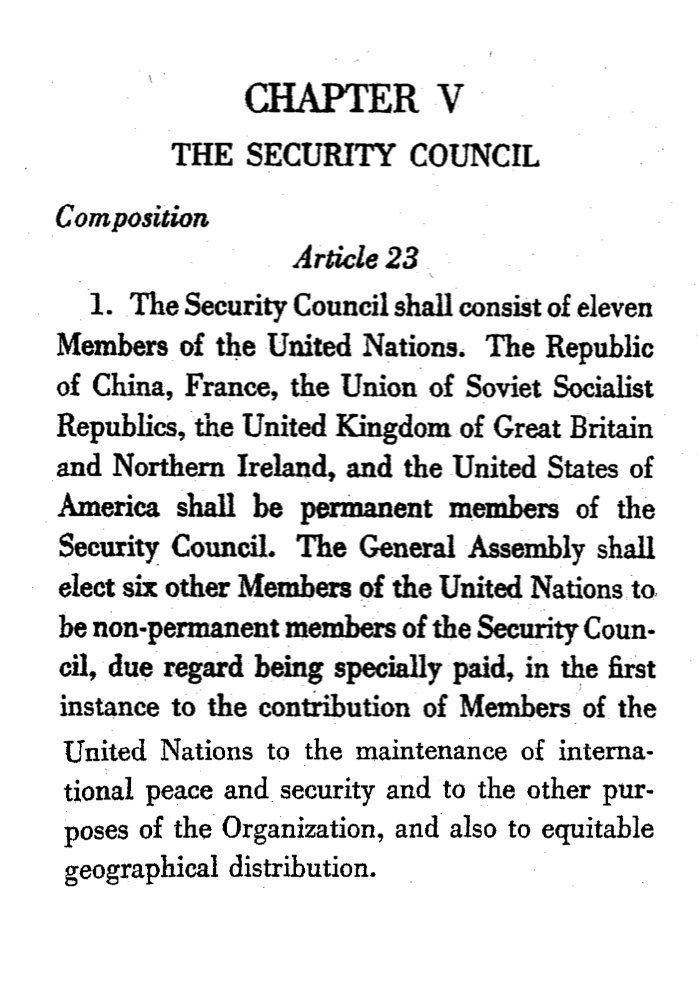 https://abs.twimg.com/emoji/v2/... draggable="false" alt="🇨🇦" title="Flag of Canada" aria-label="Emoji: Flag of Canada">The UN Charter https://abs.twimg.com/emoji/v2/... draggable="false" alt="🇺🇳" title="Flag of United Nations" aria-label="Emoji: Flag of United Nations"> wanted elected states (at the time only 6) to be chosen for geographical representation and ability to contribute to peace/security & council mandate. #WIISTOTC" title="I aim to understand the E10 and focus on one in particular: https://abs.twimg.com/emoji/v2/... draggable="false" alt="🇨🇦" title="Flag of Canada" aria-label="Emoji: Flag of Canada">https://abs.twimg.com/emoji/v2/... draggable="false" alt="🇨🇦" title="Flag of Canada" aria-label="Emoji: Flag of Canada">The UN Charter https://abs.twimg.com/emoji/v2/... draggable="false" alt="🇺🇳" title="Flag of United Nations" aria-label="Emoji: Flag of United Nations"> wanted elected states (at the time only 6) to be chosen for geographical representation and ability to contribute to peace/security & council mandate. #WIISTOTC">
https://abs.twimg.com/emoji/v2/... draggable="false" alt="🇨🇦" title="Flag of Canada" aria-label="Emoji: Flag of Canada">The UN Charter https://abs.twimg.com/emoji/v2/... draggable="false" alt="🇺🇳" title="Flag of United Nations" aria-label="Emoji: Flag of United Nations"> wanted elected states (at the time only 6) to be chosen for geographical representation and ability to contribute to peace/security & council mandate. #WIISTOTC" title="I aim to understand the E10 and focus on one in particular: https://abs.twimg.com/emoji/v2/... draggable="false" alt="🇨🇦" title="Flag of Canada" aria-label="Emoji: Flag of Canada">https://abs.twimg.com/emoji/v2/... draggable="false" alt="🇨🇦" title="Flag of Canada" aria-label="Emoji: Flag of Canada">The UN Charter https://abs.twimg.com/emoji/v2/... draggable="false" alt="🇺🇳" title="Flag of United Nations" aria-label="Emoji: Flag of United Nations"> wanted elected states (at the time only 6) to be chosen for geographical representation and ability to contribute to peace/security & council mandate. #WIISTOTC">
